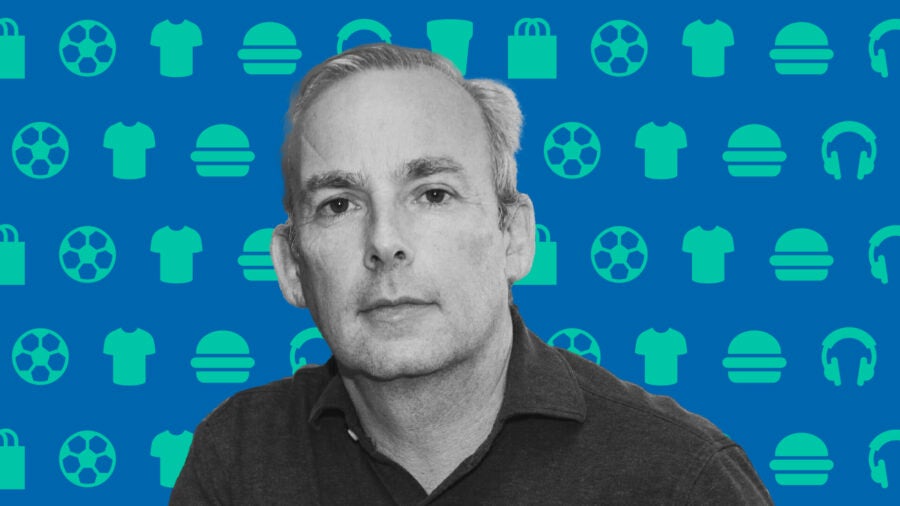
Recession? What recession? Despite the grim economic outlook for its sector, which has scarcely recovered from the hammering it took from Covid, Boxpark is forging ahead this year. Its CEO, Simon Champion, has an ambitious growth strategy that will take the company way beyond its home turf.
Champion is clearly enthused by the plan and the opportunities it will create. But he’s also realistic about the challenges of expanding the enterprise, which has achieved success partly by forming strong ties with small local businesses. For one thing, such relationships aren’t established overnight.
The firm, which repurposes old shipping containers and storage units as food, retail and entertainment venues, has three locations in London. At the original Boxpark site (established in 2011) and company HQ in Shoreditch, he speaks effusively about the importance of giving a “leg-up to independent traders”.
This trendy East End district is about as diverse and cosmopolitan as it gets in the UK. Champion says that Boxpark venues always aim to reflect their surroundings. Pointing out that Argentinian, Malaysian and Jamaican food options exist “within a few seconds’ walk of each other” here, he adds that a “sense of community informs everything we do.”
A chartered accountant, Champion joined Boxpark as CFO in 2018 before taking over from founder-CEO Roger Wade in 2021. Wade sold a majority stake to Lloyds Development Capital (LDC), the private equity arm of Lloyds Banking Group, for about £40m, but he has retained equity and now serves as a non-executive director.
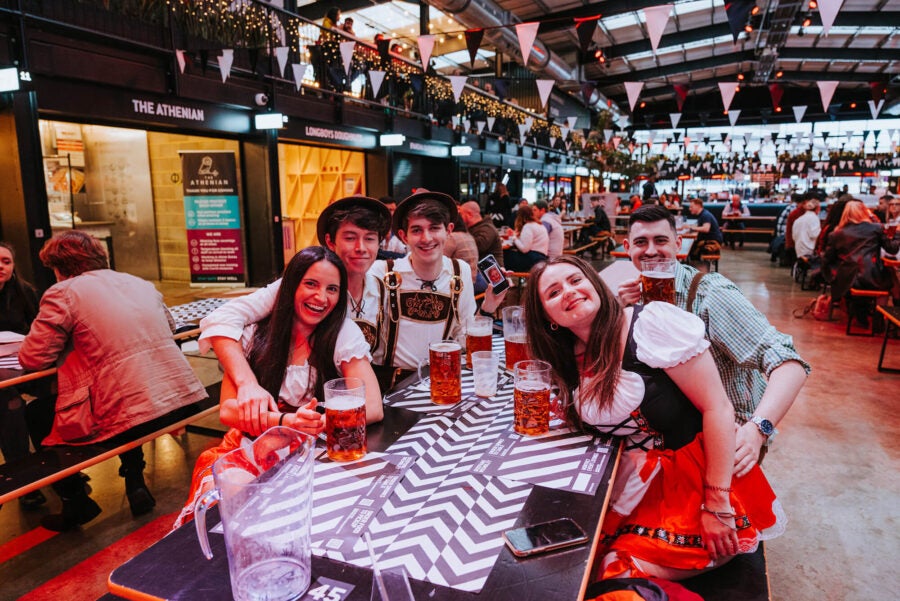
While LDC’s investment has enabled the business to develop in many ways, Champion stresses that the firm remains committed to its founder’s original vision. He describes Wade as “a great mentor”.
Boxpark’s focus is on independent and “highly specialist” traders. As Champion explains: “We’re happy and proud to be that stepping stone from the street-food market. Someone who’s selling from a stall might dream of owning their own restaurant, but it costs them too much to set up. Their skill is creating incredible food. So they pay us a small deposit, we fit them out with a kitchen, they pay us a percentage of their revenue and they’re good to go.”
While he stresses that Boxpark would never consider having well-known chains such as Costa Coffee or Subway on its premises, it is not averse to collaborating with big names in other ways. “We worked with Google as a brand partner during the World Cup and we’ve worked with the Ladbible Group on media projects. We promote them; they promote us,” Champion says. “We also have a partnership with Crystal Palace [the football club local to Boxpark Croydon]. But, from a food perspective, this will always be about independent traders.”
Taking the brand to Bristol and Liverpool
Boxpark is preparing to open two malls far from the capital this year. It’s set to transform the old O&M Sheds in Bristol Harbour, while in Liverpool it will adapt the Cains Brewery Village in the Baltic Triangle district.
“We looked at more than 300 locations. These are very much just the first two,” Champion says. “The idea is to add many more, opening two or three sites a year. We want to take on interesting architecture that has the potential to become iconic.”
Expanding the firm’s operations beyond the confines of the M25 will present Champion with some new practical challenges, as he explains: “Geography’s going to be an issue. It’s important that every location meets the standards that we demand and our customers have come to expect. Right now, I can do my monthly site inspections in one day. With different cities, that won’t happen.”
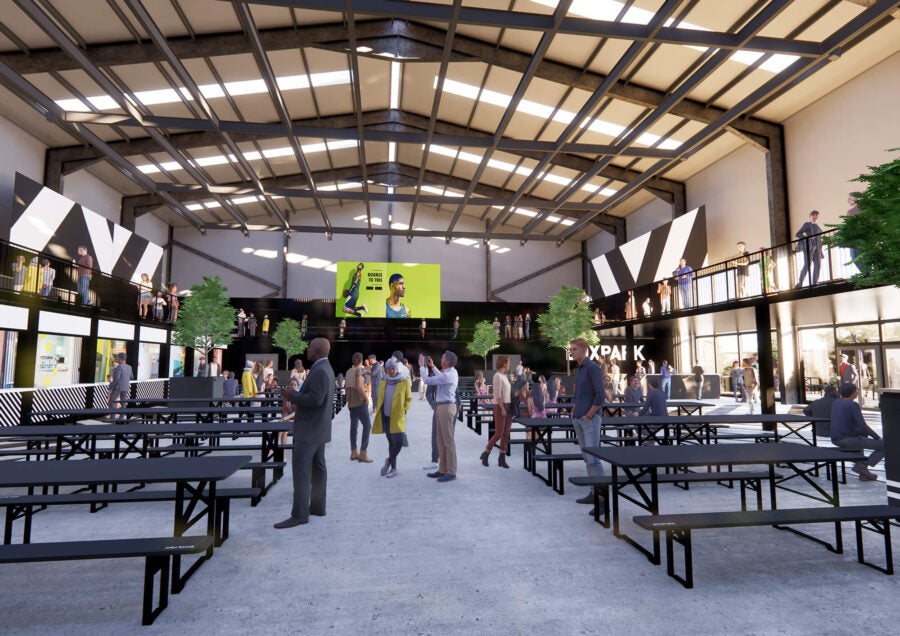
Champion predicts that the new venues will create “hundreds” of job opportunities at those locations, but he thinks it is important for new general managers to spend some time at HQ “so that they can really get a feel” for the business’s history and culture.
Nonetheless, he appreciates that “every market is different. We want a consistent standard of food quality and service, of course, but we know from months and months of research that each location will have its own preferences.”
Adopting a sophisticated marketing tool
The company is using a hi-tech membership scheme to build customer loyalty. After downloading a Boxpark ‘black card’ on to their smartphones, customers can access any of the company’s venues. Using the card, which works with various QR codes and tracking technologies, they can accrue loyalty points with each purchase. These qualify them for a range of rewards, including discounted food or priority access to Boxpark-hosted events.
“We’re constantly curating the food offering,” Champion says. “If you were to bring a group of friends, you wouldn’t have to discuss beforehand whether you’re going to an Italian or a Chinese restaurant, say, because you’d have options.”
He adds that the sites offer “a whole load of attractions” to augment the dining experience – from axe-throwing sessions to virtual-reality arcade games – and more than 1,800 live events a year.
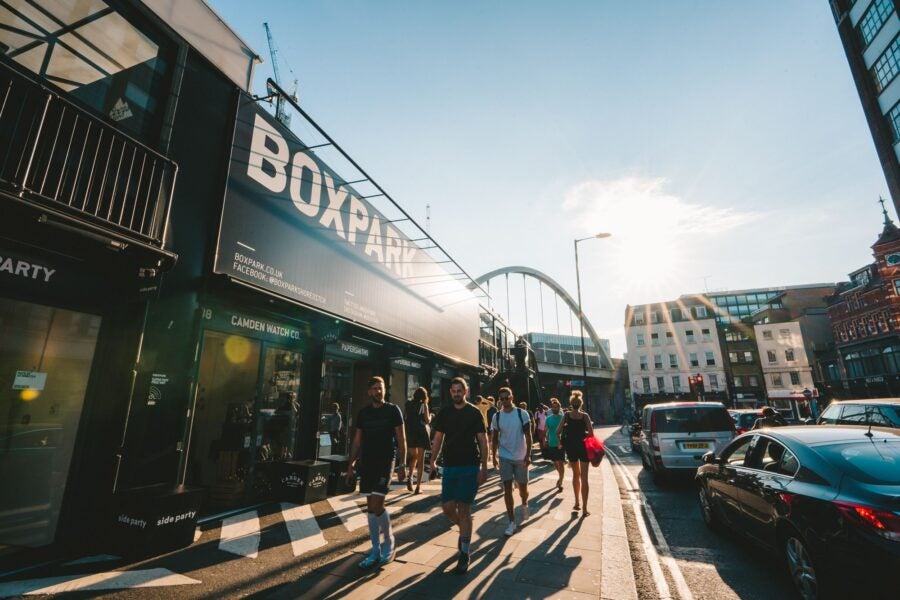
The insights that the black card offers the business have been empowering, according to Champion, who says that this “data is king. It has to be GDPR-compliant, of course, but the more you know about your business, the better you’re going to run it.”
As a marketing tool, the scheme is “incredibly useful. If we can tell what a customer is most interested in, we can ensure that we aren’t alerting them to offers they don’t want to hear about. If we know, for instance, that they often attend Boxpark in Croydon between certain times on a match day for Crystal Palace, we can customise the content they receive. It enables us to be much more targeted.”
Football, footfall and the future
Boxparks have established a reputation for being venues where sports fans – particularly football supporters – can gather and generate a boisterous, stadium-like atmosphere while watching big matches on TV.
“It’s great when there are major tournaments and people can get whatever food they want and share the space with their friends,” says Champion, who admits that it was “maybe a bit trickier” to create that level of energy during the 2022 World Cup because it happened in December. The probable solution, in the case of future midwinter tournaments, would be to provide more heated and covered space to warm up the crowds.
But Champion (a lifelong supporter of Watford FC) stresses that Boxpark offers far more than a chance for fans to gather en masse and watch the beautiful game on the big screen.
“Football is a big part of it, but it’s not just that. We’ve got music and poetry readings – there‘s a live lip-sync rap battle at Croydon this week. We have events all year round, which is something we’re incredibly proud of,” he says.
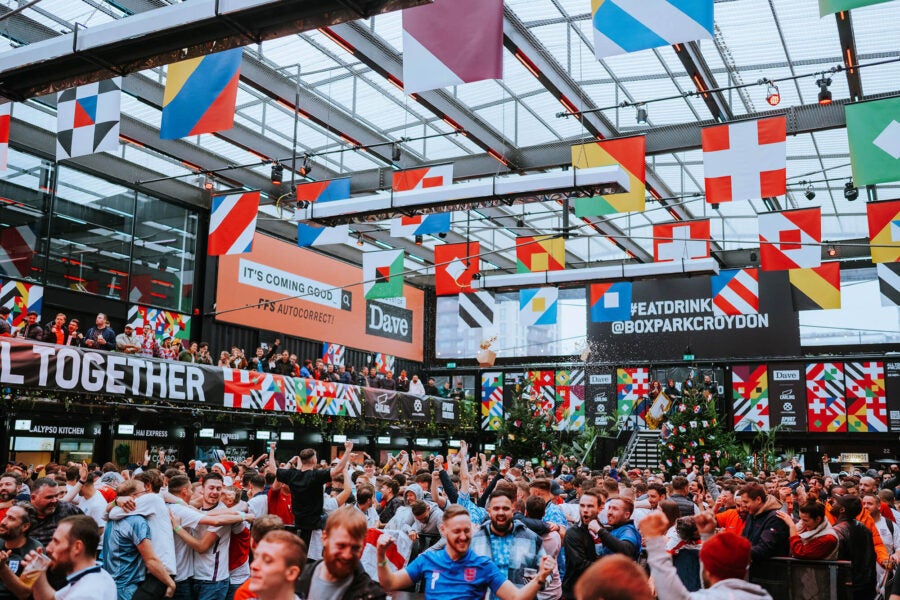
Although the company will keep exploring further retail and entertainment opportunities, he stresses that its main focus will “always be food and drink. We might stock an independent clothing store, for instance, but we wouldn’t bother having a branded outlet store, because people can simply order online.”
Acutely aware of the cost-of-living crisis and the impending economic downturn this year, Champion says that keeping prices at reasonable levels will be a guiding principle for Boxpark.
The Covid pandemic, he adds, has underlined the fact that humans are “naturally social animals. The lockdowns were difficult. When the restrictions were lifted, we saw that people were desperate to get back to us. The main thing we need to be is attractive and affordable enough for them to want – and be able – to keep coming. This is all about getting people through the door and ensuring that they can have whatever experiences they want, all in the same place.”
